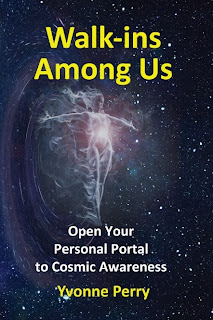“Indigos are all already aware they are different.” —Nancy Tappe
Indigos are “highly sensitive with a warrior personality,” explained Doreen Virtue, author of The Care and Feeding of Indigo Children, in the documentary The Indigo Evolution. I wholeheartedly agree. Indigo kids are unique in the fact that they hold two opposing qualities simultaneously: high sensitivity and fierceness. So they are extremely sensitive like the “highly sensitive children,” defined by Elaine Aron in her book, The Highly Sensitive Child, but what differentiates them is their personality. I prefer to use the concept of “the indigo personality” to capture their shared characteristics, such as:
• Are highly creative.
• Are extremely energetic.
• Are gifted in certain areas (for example, mathematical genius, poor reading skills).
• Have a need for fairness.
• Prize honesty (almost above all else).
• Feel equal to authority.
• Hate rules.
• Refuse to do certain things.
• Want special treatment.
• Are strong-willed.
• Waver between grandiosity and low self-esteem.
• May be prone to depression.
• Have high sensitivity (sounds, smells, touch, sights).
• Have sharpened intuition.
• Don’t respond to authoritative parenting.
• Have built-in BS detector (immediately know dishonesty).
• Tend to leave things incomplete.
• Cannot be rushed.
• May have fetish (for example, only wants to wear princess dresses).
• Like playing alone (unless with other indigos).
• Get “hooked” on things and can’t let go.
• Are independent at times, clingy at other times.
• Seek meaningful friendships.
Understanding the core characteristics of the indigo personality is very empowering. You no longer feel alone. Having worked with thousands of indigos, I can say that these attributes animate themselves differently in children but the indigo short summary is this:
• High sensitivity.
• Giftedness (in one area).
• Incredible creativity.
• Strong energy of defiance.
• Inner motivation.
• Intuitive intelligence (very high!).
When I was told early on that I beat to my own drummer I took it in stride. Now, I realize that I was merely beating to an indigo drum—which is unique, unusual to the mainstream, and deeply powerful as a force for change. Indigos see, feel, and experience life differently than their more mainstream counterparts. They tend to have an unusually high level of creativity, sensitivity, giftedness, and angry energy to channel.
This angry or warrior energy that defines many indigos isn’t a bad thing. It is the energy that breaks down broken systems (think: public school systems) and creates better ways of doing things. Of course, the challenge is to raise indigo kids to use their incredibly sensitive, highly responsive, and fierce energy as force for good.
Parenting indigos, especially if you aren’t “indigo-like,” can be a real challenge. Over the years, I have had countless clients come to me because one parent was indigo-ish and the other thought his or her child was just given to them by Martians. They just didn’t get it. Usually it started out like: “What is going on with my child? She’s as sweet as pie one moment, and then next it’s a full-blown tantrum.”
So I usually had parents detail the itty-bitty things of their parent-child interaction, and I served as the bridge to translate from indigo to adult. Then, they’d have an “a-ha” and say, “Oh my—that’s what was going on.” As soon as you know the energetic triggers of indigos you can stop bumping into them unknowingly and experiencing such upset all around.
Jamal’s Journey
One of my first Los Angeles child clients was a 5-year-old named Jamal. His mom, Lisa, contacted me because she discovered Jamal was actually highly sensitive. One instance stood out for her.
Jamal was attending a private kindergarten in Los Angeles, and he was the only African American in his grade. One school project was to bring in a baby photo and post it on the wall, where all the kids got to guess “who’s who.” Jamal knew this wasn’t going to work out for him. Jamal is very observant and aware of life, including his ethnicity, and that this was an unfair game. He told his teachers. Mrs. Smith, his main teacher, said she would work on making it fair. So she printed out famous baby photos of African Americans and decided to add them to the game. On the day of this game, all Jamal’s peers picked him out first and he got really upset. Jamal began crying and left the classroom, refusing to return. He said, “Mom, tell everyone it’s not fair and that’s why I am so upset.”
Jamal was clear from the beginning he disliked this game, felt unheard, and had a sense that it wasn’t going to work for him. His teacher, from her “older perspective,” couldn’t really understand how to create an effective solution. Ultimately, Jamal got triggered by the unfairness of this situation and couldn’t contain his emotions. Indigos as a whole cannot ignore their emotions but must learn effective outlets for them. Jamal fits the indigo profile to a “T,” with his high sensitivity, strong emotions, and warrior energy standing up for what he saw as an injustice. He refused to go back into that classroom and Lisa picked him up.
Maureen Dawn Healy is a popular author, speaker and practicing expert working with parents and children globally. Her expertise is helping highly sensitive children thrive. You may have seen her work at Psychology Today, PBS, AOL and Disney. She’s also written two books: Growing Happy Kids and The Energetic Keys to Indigo Kids. More info: www.growinghappykids.com or www.twitter.com/mdhealy
Purchase
The Sid Series on
http://tinyurl.com/AmazonSidSeries
